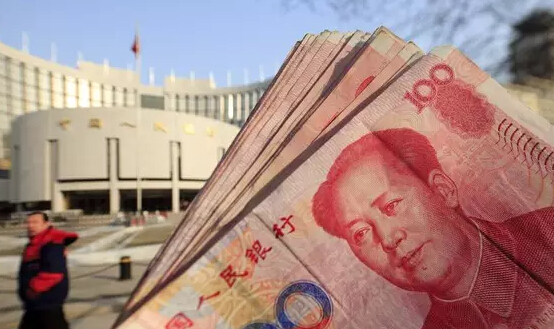
意昂2院長張軍教授
在去年堪培拉的一個論壇上🧗🏻,沈聯濤(Andrew Sheng,中國銀監會首席顧問🙇🏼♂️、香港證監會前主席)在回應一些人批評中國的決策不透明時曾風趣地說:“中國是透明的🤚🏽,只是在中文意義上”🐝。這一回答引發了聽眾的笑聲,但大概也是事實。
如果你懂中文並能每天關註中文的媒體🏊🏿♀️🍊,你的確發現,你想知道的東西基本都在那了。但這些東西未必總是明說➰,需要你去揣摩與推測。因為在中國,即便是那些有影響力的財經主管部門,也不能代表政府的最高決策部門-國務院-來拍板😖,尤其是針對一項政策出臺的時機🍫。在中國,出席官方主辦的會議和論壇顯得格外重要⏭🧍♂️,閱讀官方主流媒體的社論以及高級官員發表的文章也必不可少。在重大政策決策前夕,你或許總是可以從這些看上去雜亂的信息中找到蛛絲馬跡。這對於外國人來說簡直是不可思議,一頭霧水👨👩👦👦🙇🏻,盡管情況常常是,在一項政策被決定之前🧂,總會有坊間流傳的風言風語,而境外的媒體往往也先知先覺👨🏻🦱。
這些日子以來,人民幣的匯率問題弄得滿城風雨🤷🏿♀️,成為全球討論的焦點。不足為怪🧗🏿♀️,作為全球第二大經濟體並且在全球經濟復蘇中扮演著舉足輕重的角色,中國貨幣幣值的不穩定自然牽動著投資者的神經。但是,在這當中,危言聳聽者眾多,大多數人並非冷靜思考🚣🏻,更未能真正跟進(甚至誤讀與曲解了)中國貨幣當局每一步的政策與做法,從而很遺憾完全看不到一個完整的畫面是個什麽樣子。
呼聲甚高的關於做空人民幣的言論,雖然再度引發人民幣匯率的波動和熱錢流出的加快,但這畢竟還只是發生在相對於在岸市場來說微不足道的人民幣離岸市場,且處於政府的可控之中。這是因為不僅僅離岸市場規模狹小,連接在岸與離岸市場的通道屈指可數;重要的是🏃🏻♂️,中國10年來在金融市場開放和資本賬戶可兌換上的決心也搖擺不定,謹慎有加。直至兩年前啟動了上海自貿區,金融開放上的行動也相當遲緩。這種極其有限的金融開放既可以解釋造成人民幣匯率動蕩的原因,也反過來給予了中國方面在面對匯率波動時不必手忙腳亂的有利條件。中國的最高領導人公開承認,人民幣不存在大幅度貶值的基礎。這當然是話中有話。
即使這次國際上不乏做空人民幣的投機者,但對中國經濟來說,依然難以真正釀成大禍。作為仍然比全球經濟增長率高出4個百分點和擁有超過10萬億美元GDP的中國經濟👵🏻,再加上還有超出3萬億等值美元外匯儲備和占GDP接近40%的儲蓄水平,貿易上每年依然有數千億美元的順差,要說中國正在經歷匯率危機並將致使中國經濟突然坍塌🏃🏻,實在言過其實🏌🏿♀️,過於膽大了。
只要簡單回顧一下1997年爆發的東亞金融危機的文獻,你就會發現,中國這次所經歷的貨幣動蕩完全是意料不到的事件✷,其原因比結果更不可思議。沒有比誤解更好的詞能來描述這次貨幣動蕩的原因了。過去10年來,中國一直堅持非常謹慎的原則推進金融的改革和開放👩👩👧👧,在減少政府幹預、加強金融監管和更市場化的利率與匯率形成機製上有序推進,並取得可喜進步(坦率地說💺,中國的央行功不可沒)➗。即便在上海自由貿易區建立人民幣國際化的渠道上也煞費苦心設計賬戶分離的監管機製🕵️♀️。從根本上說🤒,這些體製上的改進應該有助於減少金融風險和提高應對風險的能力,實在難以與貨幣危機的發生扯上幹系。
今天應該有足夠的證據證明去年8月11日中國央行做出的貶值人民幣的決定🧔,是基於一個很有說服力的理由而深思熟慮的結果。在有望被IMF考慮把人民幣納入SDR籃子之前,央行希望在朝著用更市場化的方式來形成人民幣匯率方面邁出一步,以示承諾。而且我相信這個舉動是正確的。但不幸的是,此舉沒有得到全球市場的理解和正確解讀,反而被當作中國為挽救經濟下行壓力而大幅貶值本幣的孤註一擲的行動。這一猜測在國際金融界迅速形成共識,推升了人民幣持續和大幅度貶值的預期。為了穩定預期🤹🏽♂️,12月國家外匯管理局(SAFE)進而提出人民幣改用SDR一攬子貨幣來估值而不再單一地盯住美元💹。在上海的中國外匯交易中心推出了基於一攬子貨幣的人民幣匯率指數👨🏻💼。但這些用心的指引看上去並不那麽管用🤕,離岸市場沽空人民幣的預期依然持續升溫🪈,人民幣再度處於貶值的巨大壓力之下👩🏻🦽➡️。一時間,大有中國貨幣當局的這個努力迅速變成自毀長城的武功之虞。是的,或許只有缺少事先良好的溝通或者曲解才能解釋這個後果🖤。事實上,由於事先央行沒有清晰地表達意圖😹,缺少及時和足夠的溝通渠道🧎➡️,外國投資者無法真正領會中國央行去年8月對人民幣匯率的突然調整到底是出於什麽目的🦬,反而把它誤解為一個經濟硬著陸這個更大危機的前兆。中國的網絡上甚至流傳著一個段子➗,說IMF的總裁也不得不撥打電話給中國領導人來了解那次匯率調整的真相👨🏽🔬。這也是為什麽學者出身的方星海-中國證監會的最年輕的副主席-在剛剛結束的達沃斯論壇上承認中國的金融當局與市場投資者之間缺乏及時和足夠的溝通時,會在中國國內引起一片嘩然。
當然😻🚪,說白了💡,所謂溝通上的欠缺只是對不熟悉中國的決策體製所造成的不適的一種描述👩🏿🦳,不完全是因為沒有溝通,而是溝通方式的差異所致。境外投資者的這一不適應症難以全然歸咎於中國的央行。說句公道話,在重大經濟決策均由最高領導層拍板決定的體製之下,央行的努力與行動相當出色🌉。2008年如此,今天也如此🤼。
為了防止被國際市場投資者的再度誤讀,面對國際市場上對人民幣匯率的動搖,中國的央行近期在維護匯率穩定的政策設計上可謂煞費苦心,盡量不再釋放過強的貨幣寬松信號以免誤導國際市場。這些日子,由於央行出手穩定人民幣匯率已造成銀行間的流動性趨緊,而且按照慣例🌪,中國的春節來臨,中國國內市場對流動性的需求將處於高位👱🏼,市場預計央行將會選擇降準來提供大量的流動性🤱。但這一次央行可謂用心良苦,依然回避了降準而采用了非常規性的手段(如FLM⛷、 SLO、SLF和逆回購等公開市場操作)來釋放流動性🧑🦼➡️,使回購利率創下十年來的新低。
這說明🧕,即使外部的投機者虎視眈眈,中國的央行並沒有亂了陣腳📃,依然有足夠的回旋余地🛺🏄🏽。再明顯不過👿,你如果真能跟進這段時間以來所發生的一系列事件的前因後果並能學會欣賞中國央行的作為👮,中國當前的貨幣動蕩算不上是一場貨幣危機。但即使這樣,中國的領導人一定會要求他們的貨幣當局和金融監管者認真反思過去的做法有哪些不妥並加以矯正🧝🏻♀️。放眼未來🤦🏼,人們大可不必對人民幣的匯率前景過於悲觀,但依然有理由擔心在這次貨幣動蕩之後🙋🏿♀️,中國是否會在金融開放和人民幣國際化上有所退縮。誰知道呢🛟?

China’s Crisis of Miscommunication
SHANGHAI – At a forum in Canberra last year, Andrew Sheng quipped, “China is transparent, but only in the Chinese sense.” The statement provoked laughter among those who view China’s decision-making processes as opaque; but it was laughter born of the recognition that Sheng was right. In the run-up to a major policy decision in China, editorials by high-ranking authorities in major publications, as well as reports and communiqués from official forums and meetings, almost always provide clues about what will happen. You just have to know how to read them.
That is easier said than done, at least for foreign media, whose struggle to anticipate China’s policy moves has fueled much frustration – and even accusations that Chinese decision-making is secretive and unpredictable. This struggle is perhaps most apparent today in discussions about China’s exchange rate.
Many investors interpreted last August’s unexpected devaluation of the renminbi by 1.9% against the US dollar – the first decline following years of steady appreciation – as a last ditch effort by the People’s Bank of China (PBOC) to stave off an economic crash. They thus assumed that it was just the beginning of a protracted policy-induced depreciation. As a result, a wave of investors shorted the renminbi, fueled exchange-rate volatility and drove a sharp increase in capital outflows.
But China is not really on the verge of a currency crisis at all. Given that all of this activity is taking place in the offshore renminbi market, which is small in scale and has only limited connections to mainland China’s financial system – the result of China’s hesitancy about financial-market liberalization and capital-account convertibility – the situation remains controllable. Add to that China’s other strengths – annual GDP of over $10 trillion, a growth rate at least four percentage points higher than the global average, $3 trillion in foreign-exchange reserves, a savings rate of 40% of GDP, and a massive trade surplus – and an exchange-rate crisis seems highly unlikely.
But that does not mean that there are no risks. On the contrary, China has a strong interest in curbing the volatility – and, given China’s centrality to the global economy, so does the rest of the world. The key will be to get markets and policymakers on the same page.
So far, China’s leadership has been quite forthcoming about its plans, declaring publicly that substantial devaluation of the renminbi is not part of its plan. Given the enduring strength of China’s economic position, their words should be taken at face value.
Moreover, Chinese policymakers have shown a clear commitment to minimizing government intervention and promoting a market-oriented approach for setting interest and exchange rates. And the authorities – particularly those at the PBOC – have made significant progress toward this end.
In fact, the devaluation last August was accompanied by the announcement of a more market-oriented mechanism for setting the renminbi’s exchange rate in the interbank market, with the daily fixing rate based on the previous day’s closing price. That move, an important step in the internationalization process, was a prerequisite for the addition of the renminbi to the basket of currencies that determine the value of the International Monetary Fund’s reserve asset, the Special Drawing Right.
But even when China attempted to create a more reliably market-based system, investors’ responses were skewed, with unfounded expectations of a substantial and consistent devaluation fueling speculation in international markets. The subsequent attempt by China’s State Administration of Foreign Exchange to stabilize expectations by declaring that the renminbi would be valued against an undisclosed basket of currencies, instead of just the US dollar, failed to convince them. Short trades continued to rage offshore, putting the renminbi under increasing pressure.
No doubt, China could have communicated its new exchange-rate policy more clearly, a point that Fang Xinghai, Vice President of the China Securities Regulatory Commission, has admitted. But that does not mean that the authorities, especially the PBOC, were being secretive or opaque in their decision-making. The real problem was, as Sheng suggested, a difference in communication style.
Recognizing this disconnect, the PBOC has been working vigorously to prevent further misunderstandings by designing policies that will safeguard exchange-rate stability, while taking care not to transmit any signal that monetary easing is in the cards. Even with inter-bank liquidity strained, the PBOC is refusing to lower the deposit reserve rate to release liquidity – in defiance of market expectations.
Instead, the PBOC is employing unconventional regulatory tools – such as short-term liquidity operations, standing lending facilities, and reverse repurchase agreements – to boost the money supply, driving the repurchase rate to a ten-year low. Clearly, even with external speculators breathing down its neck, the PBOC remains committed to stabilizing the exchange rate, while advancing its market-oriented goals. Investors should take note.
China’s leaders have plenty of challenges ahead, and improved communication with markets could help to overcome them. Fortunately, it seems that China’s leaders recognize this imperative, and are working to meet it. Nonetheless, it is reasonable to wonder whether, if the current currency turmoil endures, Chinese policymakers’ commitment to financial liberalization and currency internationalization will wane. One hopes that it does not come to that.
文章來源😬:FT中文網;Project Syndicate
 返回頂部
返回頂部